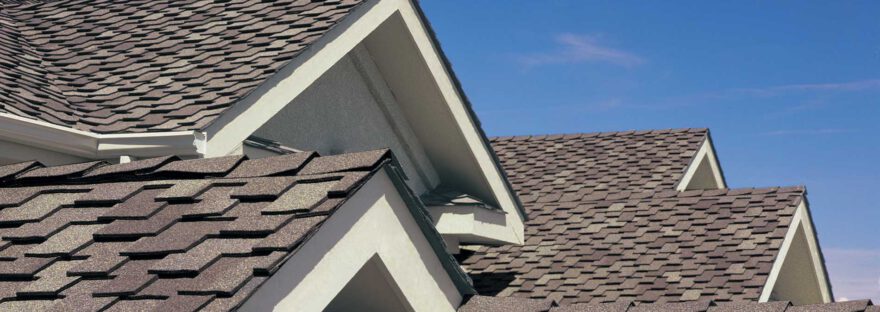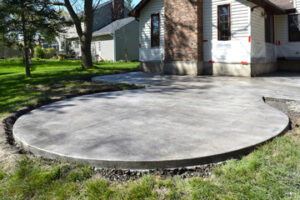A well-maintained roof improves a home’s curb appeal. It also protects the home’s interior and increases its value.
Roofing Companies have the experience and expertise to handle all types of roofs. They also offer many other services for homes and businesses. They are insured to cover any damage caused by hail or wind.
Local roofers understand your area, its roofing codes, and how to install a roof properly. They also know what to look for and how to deal with any issues that might arise during a roofing project. A good roofer will have years of experience in the community, and this is a clear sign that they’re a trustworthy company you can trust with your home.
If you’re searching for a roofer, start by asking your friends and family for recommendations. You can also search online for reviews of different roofing companies in your area. However, you should remember that online reviews are not always accurate and may be biased. When evaluating a roofing company, make sure you read multiple reviews and check their website to see if they have a physical office or showroom in your city.
It’s important to choose a roofing company that is licensed, insured, and bonded. If a roofing company is bonded, it means that they have been vetted by a bonding company to ensure that they’re reputable and trustworthy. A bonding company will usually require a roofing contractor to maintain high ethical standards and complete their jobs properly.
A trustworthy roofing company will produce a well-written, thorough estimate while at your property. If a roofing company says that they can only send you the estimate by email or that they want to talk to you about it first, this is a red flag. This type of roofing company is often a commission sales person or middleman who will not be the actual hands on roof installer.
Another red flag to watch for is if a roofing company asks for your insurance claim information before you hire them. This is a common practice of storm chasers, who are out of state contractors that come in after major storms, undercut local prices, and then disappear with the insurance money. The best way to avoid this is to choose a local roofing company that is not only bonded but has an established office in your city and a strong regional presence.
They’re Insured
Most roofing companies carry general liability insurance to protect themselves in the event of an accident that causes damage to a home or business. This type of policy typically covers repair costs and legal expenses. In the event of a serious incident, it may also pay for medical bills and funeral costs.
In addition to general liability, roofing contractors usually have workers’ compensation insurance. This coverage pays for employee medical treatment, long-term care and missed wages. It’s a requirement in most states for companies with three or more employees.
Roofing contractors also have to carry commercial auto insurance for their company vehicles and any equipment they transport from one job site to another. This is a separate policy from your personal auto insurance, and it typically includes broader protections for work-related vehicle damage or theft. Many roofers will add a tools and equipment floater to their commercial auto insurance to protect any expensive specialized equipment they use in the course of doing their job.
If a roofing contractor works on a project that requires a building to be shut down or partially destroyed, they may have to obtain builders risk insurance. This policy protects the buildings and structures in construction from weather or fire damage that could occur while work is being done. Most property owners will require this insurance to be in place before they allow a roofing contractor onto the jobsite.
It’s important for roofing businesses to have a business owners policy (BOP) or a commercial package, which bundles together general liability, commercial property and workers’ compensation insurance into one comprehensive policy. This can help smaller roofing businesses save money by avoiding gaps in coverage that might occur when they buy these policies separately.
Roofing is a dangerous occupation, so it’s essential that any business that employs roofers has workers’ compensation insurance. Workers’ comp covers medical expenses, lost wages and funeral costs in the event of a workplace injury or illness. It’s a required policy in most states, and it’s worth discussing with your insurance professional about how to fulfill this requirement.
They’re Experienced
A roofing company that’s been around for a while has the experience to do quality work and stand by their work. A large part of their business is insurance repair and replacement, so they know how to navigate the claims process for homeowners. They also have the resources to help them make repairs quickly and efficiently. You’ll be able to find plenty of reviews online from their previous customers, which is what most people look at now when they are considering hiring a contractor.
Another thing to look for is their website and other online presence. A well-designed website will have a knowledge base and blog that demonstrate their understanding of the roofing industry. They may even have a video on their site that shows their work in action. This is a great way to get a feel for the type of contractor you’re working with.
There are several different types of roofers, including sales-focused companies and repair-oriented companies. Sales-focused roofers often have a salesperson who goes out on the road and meets with customers to present their options for the job. These presentations can be up to four hours long and are designed to be comprehensive and give the customer a lot of value for their money. They typically start with the highest priced option and will negotiate with customers until they reach an agreement.
Repair-oriented roofers typically focus on repairing leaky roofs. They have a 24/7 call-in service and offer emergency services, such as leak detection and roof repair. They also have a team of experts who can handle complex commercial roofing projects, such as metal and single-ply roofing systems. One of the largest repair-oriented roofing contractors is Tecta America, which has over 53,000 roof leak repairs under its belt and adheres to Occupational Safety and Health Administration guidelines.
Many new roofing business owners are concerned about the legal process and bookkeeping for their business. However, both of these are easier than they seem with modern software and helpful resources both online and elsewhere. A good small business consultant will be able to help you get started with the legal process and set up an accounting system that works for your needs.
They’re Affordable
If your roof is damaged, it’s important to find a company that can provide quality work for an affordable price. This is especially true if you’ve just gone through a storm or have an older home. It can be difficult to find a good roofing company, but the search is worth it for the comfort you’ll feel knowing that your roof is protected from inclement weather.
There are several types of roofing companies that can offer you affordable options. These companies can include service roofers, insurance roofers, and storm chasers. These companies will often have a large service area and multiple crews to meet your needs quickly. They can also be competitive and flexible with their pricing. They may even offer long-term warranties on their work.
Service roofers focus on the entire process, including inspections and repairs. They can typically schedule appointments online, and they will have a support person onsite throughout the day to answer your questions or interface with the crew. They can handle both residential and commercial jobs, insurance and non-insurance work, and they are usually able to provide financing options.
Insurance roofers specialize in working with homeowners to handle their insurance claims. They can help with the entire process, from initial inspection to final paperwork. They may have different packages available, depending on the type of damage and your budget. They can even offer in-house financing, which can save you time and money.
Storm chasers are a particular type of roofer that follows the weather. They can be a good choice for those who have recently experienced major weather events, as they can take care of the entire insurance process. However, they are not as reliable as a service or insurance roofer.
When choosing a roofing contractor, make sure you choose someone with experience. A less-experienced contractor will likely charge you more for their services and might not do as good a job. This can cost you more in repairs or damages in the long run. You should also ask for references from friends and neighbors who have had roofing issues in the past. These references can help you find a trustworthy, honest, and affordable roofing contractor.



